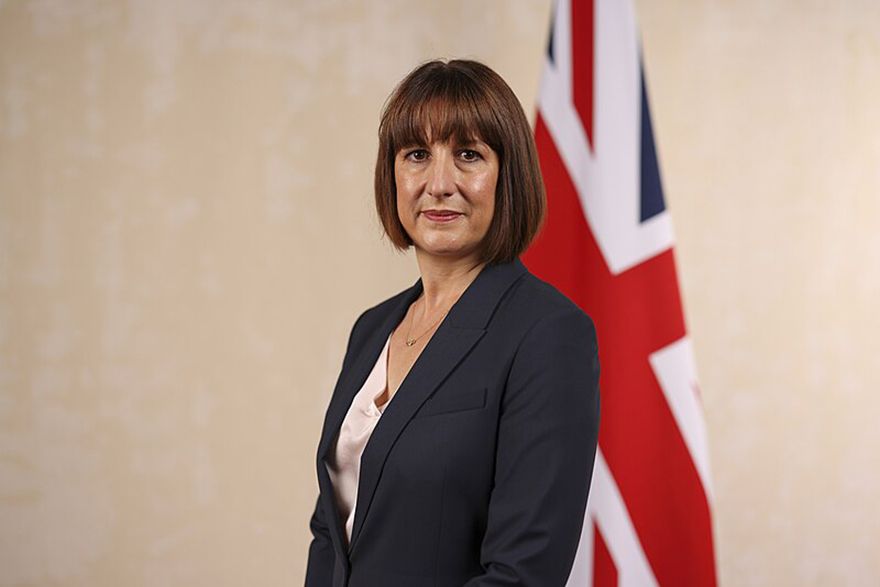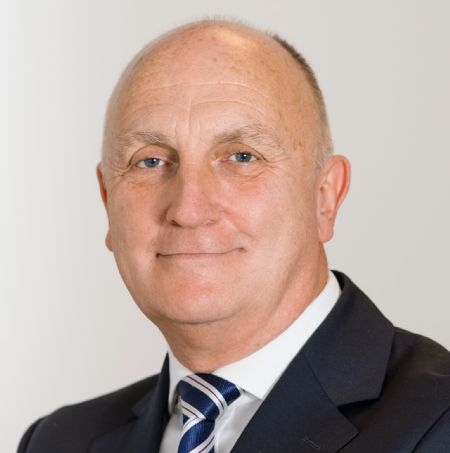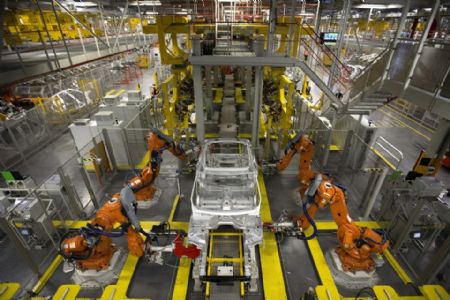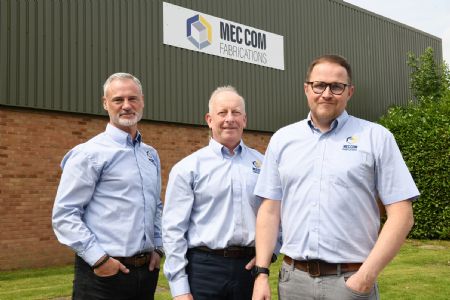
In today’s much-anticipated Budget delivered in the House of Commons by Rachel Reeves, the Chancellor of the Exchequer, announced tax rises of £40 billion in a bid to shore up public finances and rebuild pubic services.
Rain Newton-Smith,
CBI chief executive, said: “The Chancellor had difficult choices to make to deliver stability for the economy and public finances. A more balanced approach to our fiscal rules which prioritises capital investment should help to unlock private sector investment in our infrastructure and ‘net zero’ transition over the long-term.
“This is a tough Budget for business. While the Corporation Tax Roadmap will help create much needed stability, the hike in National Insurance contributions alongside other increases to the employer cost base will increase the burden on business and hit the ability to invest and ultimately make it more expensive to hire people or give pay rises.
“Only the private sector can provide the scale of investment required to deliver the Government’s growth agenda. To achieve this shared mission of growing our economy sustainably, it’s vital that the government doubles down on its partnership with business to unlock the investment that is needed to drive opportunity around the UK.”

Stephen Phipson,
Make UK’s chief executive, said: “This budget was always going to involve tough choices for business as the Chancellor grapples with the state of the nation’s finances while, at the same time, improving the foundations of the economy. However, there is no escaping the fact that raising employer’s National Insurance contributions and, the surprising change in thresholds, at a time of other cumulative increases in employment costs will be challenging for many businesses and especially SMEs.”
“However, looking at the bigger picture and, the medium to long-term, we welcome the Governments clear path to growth for manufacturing with a number of positive measures. In particular, the commitment to an Industrial Strategy, the Corporate Tax Road Map and, continued support for vital programmes such as Made Smarter, are key elements of a growth plan which will enable UK manufacturing to make significant progress over the coming years.”
Focusing on the rise in employers’ National Insurance contributions, Verity Davidge, Make UK’s director of policy, said: “This is a substantial increase in employers’ costs and will cause many to think twice about recruiting, make pay increases for employees much less likely and, inevitably lead to some job losses for working people. The rising costs associated with the National Living Wage, apprenticeship levy and other policies over recent years already risks hampering manufacturers’ investment in their workforce. This cumulative increase will send employers’ costs soaring.”
investment and innovationFhaheen Khan, senior economist at Make UK, added: “Certainty and predictability are the bedrock on which investment decisions are made. This is why the Government’s commitment to Corporation Tax policy will be a great comfort to many businesses who have seen the tax burdens they shoulder grow heavier. By backing support for investment and innovation, R&D will be at the centre of propelling UK industry forward and will encourage businesses to proceed with productivity enhancing projects with greater confidence. It is imperative we continue to maintain a fine balance between existing tax burdens and the relief for good decision-making creating opportunity in the high growth areas of industry, such as automotive, aerospace and life sciences. Manufacturers can now proceed confidently knowing the mission for growth is a clear and achievable objective.”

Mike Hawes, the
Society of Motor Manufacturers and Traders’ chief executive, commented: “The Chancellor is right to set out measures to address the deficit while investing for future growth. The automotive industry is a growth-driving sector, fundamental to the delivery of the country’s ‘net zero’ ambitions. We therefore welcome today’s commitment of £2 billion of automotive transformation funding as part of the Government’s modern Industrial Strategy.
“Delivering that strategy depends on the UK being globally competitive. Additional National Insurance contributions will put massive pressure on the automotive supply chain which is predominantly SMEs. Next year’s spending review must find resources to fund measures that alleviate the strain on these companies and help them transition to an electrified future.
“A strong manufacturing sector depends on a strong market. The lack of substantive measures to support the new car market – in particular for electrified vehicles – is hugely disappointing. We welcome the extension of the Plug-in Van Grant and company car tax benefits, but these alone cannot drive the growth in demand needed. With the sector challenged to deliver the world’s most ambitious EV transition targets, achievement of those targets is in serious doubt. There must be an urgent review of the market and regulation, else the cost will soon be felt in reduced UK investment, economic growth and jobs.”
Beatrice Barleon, head of policy and public affairs at
EngineeringUK, said: “We welcome the Chancellor’s commitment to invest in education and skills as a central pillar of the Government’s growth agenda, not least through the creation of Skills England and the announcement of a £40 million pot to develop new foundation and shorter apprenticeships in key sectors. We look forward to continuing to support the Government to develop a new Growth and Skills Levy, ensuring an apprenticeships system that provides ample routes into engineering and technology careers for young people.
Mixed bagChris Iveson,
FourJaw Manufacturing Analytics’ CEO, said: “Today’s Budget was a mixed bag for manufacturers. The forecasts around growth and inflation are positive and should encourage manufacturers that have delayed investments to spend again on measures that drive long-term improvements. But the changes to the national living wage and national insurance will add to manufacturers’ cost base when many are vulnerable due to spiralling input costs.”
“These cost increases will make reshoring of manufacturing work, which has been a key source of growth in recent years, harder to justify, and there is a risk it will limit employment opportunities in the sector, particularly for those entering the industry. There will need to be more focus on automation and other technologies to drive productivity and more efficient manufacturing operations.
“The Chancellor’s focus on growth, investment and the use of technology to drive improvements and efficiencies is most welcome. Manufacturers in the aerospace, automotive, healthcare and construction supply chains are likely to be feeling optimistic after today’s announcements. The multi-year funding commitments for aerospace, electric vehicles (EVs) and life sciences are great news for manufacturers in these sectors, while support for new ‘green’ hydrogen projects across the UK could be a gamechanger. These are already some of the most advanced, efficient, and tech-savvy sectors in our economy, and these commitments can help them become world-leading.”

Nick Lathe, finance director of
Mec Com Fabrications, a precision fabricator and specialist in electromechanical assembly, said: “It was a very difficult conundrum to navigate, and it appears that businesses are picking up the majority of the tax burden.The increase in national minimum wage has the potential to squeeze other pay levels within companies and that – when combined with the employer NI contributions – will ramp up costs and put additional pressure on bottom lines throughout the country.
“There is little scope for manufacturers to pass these on, so it will be a case again of looking how we work smarter and if we go through with planned investment and recruitment. With my glass half full, I’m hoping that the impact of these tax rises will hopefully be partly offset by the market reacting positively to the delivery of a fully costed and balanced budget. This in conjunction with current lower rate of inflation, should provide the opportunity for further imminent interest rate cuts and a little bit of relief to SMEs keen to grow but continually squeezed by external pressures.”
Mitchell Barnes, CEO of
RYSE 3D, a global specialist in production 3-D printing, concluded: “It is a budget that unfortunately I think we were all expecting and has done little to reassure businesses that Labour understands what the economy is all about. We are a high-tech company, that exports globally and have created 25 jobs – we should be a poster boy for what ‘growth’ looks like, yet I find myself this afternoon questioning whether the Government actually wants firms like RYSE 3D to be based here. There is no question we will succeed, and we will grow, but it will be despite policy, tax rises and worker reforms, which will shackle employers and force us to consider investment and recruitment decisions going forward.”